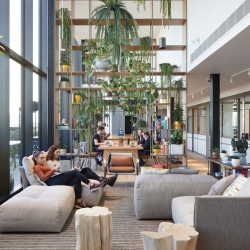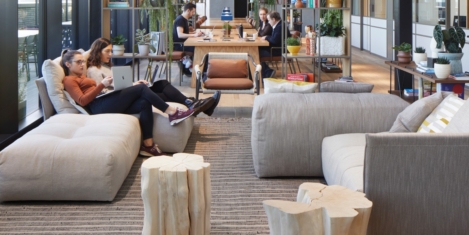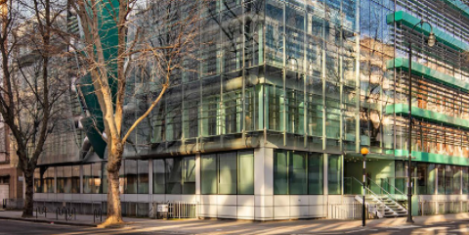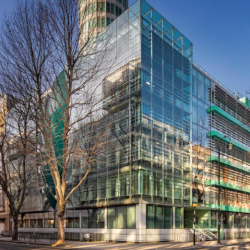To provide the best experiences, we use technologies like cookies to store and/or access device information. Consenting to these technologies will allow us to process data such as browsing behaviour or unique IDs on this site. Not consenting or withdrawing consent, may adversely affect certain features and functions.
The technical storage or access is strictly necessary for the legitimate purpose of enabling the use of a specific service explicitly requested by the subscriber or user, or for the sole purpose of carrying out the transmission of a communication over an electronic communications network.
The technical storage or access is necessary for the legitimate purpose of storing preferences that are not requested by the subscriber or user.
The technical storage or access that is used exclusively for statistical purposes.
The technical storage or access that is used exclusively for anonymous statistical purposes. Without a subpoena, voluntary compliance on the part of your Internet Service Provider, or additional records from a third party, information stored or retrieved for this purpose alone cannot usually be used to identify you.
The technical storage or access is required to create user profiles to send advertising, or to track the user on a website or across several websites for similar marketing purposes.
 Humanyze has released the second installment of the 2021 Future of Work Report, a holistic analysis of the evolution of work throughout the pandemic and employee sentiments about the post-pandemic future of the workplace. Nearly 2,300 survey responses were collected from individual employees and people managers, and compared to responses from the spring 2021 report, to identify key changes over the last 6 months. (more…)
Humanyze has released the second installment of the 2021 Future of Work Report, a holistic analysis of the evolution of work throughout the pandemic and employee sentiments about the post-pandemic future of the workplace. Nearly 2,300 survey responses were collected from individual employees and people managers, and compared to responses from the spring 2021 report, to identify key changes over the last 6 months. (more…)






 The 2021 Digital Etiquette Study by
The 2021 Digital Etiquette Study by 
 Hiding the bottom half of the face with a mask could have a detrimental effect on our ability to socially interact and share other people’s emotions, new research suggests. A
Hiding the bottom half of the face with a mask could have a detrimental effect on our ability to socially interact and share other people’s emotions, new research suggests. A 
 The World Green Building Council (
The World Green Building Council (
 According to a
According to a 
 The workplace power dynamic has shifted in favour of employees, according to a new study released from BCW in partnership with Workplace from Facebook (now Meta of course). The inaugural
The workplace power dynamic has shifted in favour of employees, according to a new study released from BCW in partnership with Workplace from Facebook (now Meta of course). The inaugural 
 The latest research from
The latest research from 
 Nearly two thirds (61 percent) of HR and people professionals strengthened their skills – through either upskilling or reskilling – as a result of their organisation’s response to the COVID-19 pandemic, the latest People Profession survey report from the
Nearly two thirds (61 percent) of HR and people professionals strengthened their skills – through either upskilling or reskilling – as a result of their organisation’s response to the COVID-19 pandemic, the latest People Profession survey report from the 


 As
As 
 Nearly 60 percent of HR leaders reported that building critical skills and competencies will be their number one priority in 2022, according to a survey by
Nearly 60 percent of HR leaders reported that building critical skills and competencies will be their number one priority in 2022, according to a survey by 
 Millions of British workers face uncertainty as a snapshot of the nation’s work practices claims that one in five employees are unsure whether they’ll be expected to work remotely, onsite, or a mix of both in the future. Without having a clear decision from their employer, some employees are unsure about their organisations’ return-to-office plans.
Millions of British workers face uncertainty as a snapshot of the nation’s work practices claims that one in five employees are unsure whether they’ll be expected to work remotely, onsite, or a mix of both in the future. Without having a clear decision from their employer, some employees are unsure about their organisations’ return-to-office plans. 







